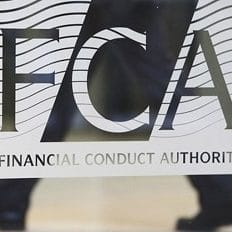
FCA: Possible role in regulation litigation funding
The Law Society, Bar Council, CILEX and the Association of Costs Lawyers (ACL) have become the latest to call for stronger oversight of third-party litigation funding.
But there was no consensus on what form this should take. While the Law Society said self-regulation of the sector through the Association of Litigation Funders (ALF) “seems to have worked well” and should be built on, the Bar Council said the current model “has not worked”.
CILEX said “proper regulation – rather than the current self-regulatory regime – would both protect claimants from under-settlements and ensure the justice system is not viewed simply as a business venture”.
The ACL said the significant volume of funding coming into the market “could have a negative impact and therefore some form of regulation, through an independent regulator or legislation, would be beneficial to ensure that the net positive that is currently provided is not eroded”.
They were all responding to the Civil Justice Council’s review of litigation funding. Regulation is one of the issues raised in its interim report; no conclusions were drawn at this stage, but concerns were raised about the adequacy of voluntary self-regulation.
There was broad recognition in the responses that funding could enable access to justice.
The Bar Council said it was “difficult to say” whether instances of claimants being taken advantage of, or damages being wiped out by the funder’s recovery, happened enough to warrant extensive intervention, given the relatively small pool of funded litigation that has concluded.
However, members of the Commercial Bar Association had said this was “not rare”.
The current model of self-regulation “has not worked”, the Bar Council said. While the voluntary code was “helpful” for ALF members and those who otherwise adhered to it, “not all market participants do” – the report itself noted that only 16 of the estimate 44 funders operating in England and Wales were members.
The Bar Council did not have a firm view on the right model but said minimising the risk of satellite litigation focused solely on funding disputes was important.
Three possible models were a mandatory code of practice for funders overseen by a new litigation funding regulator, retaining self-regulation but increasing and/or developing ALF’s powers – perhaps including some oversight by an established statutory regulator, such as the Financial Conduct Authority (FCA) – and involving the court in the assessment of the level of the funder’s recovery to be paid from damages.
The Commercial Bar Association’s preference, it said, was for “light-touch regulation/a mandatory code of practice”, with a cap on recovery in the form of a sliding scale, reflecting the time cost of money and based on a percentage of recoveries and/or a multiple of investment.
While, back in 2010, the Law Society had called for statutory regulation, “given the time that has passed, we recognise that, on balance, self-regulation of the sector seems to have worked well”.
But it would “welcome” measures to strengthen protections for consumers, such as through the requirement for funders to sign up to umbrella organisations such as ALF and adhere to their codes.
There was also “potentially scope” to introduce tougher sanctions for non-compliance with the code – the current ALF limit of £500 “seems a token amount with no real punitive consequence” – and a system of self-regulatory checks and audits could be established to monitor ongoing compliance.
There was also merit in strengthening the requirements around capital adequacy.
The society did not rule out statutory regulation by the FCA or another body if the evidence showed it was need, “but as an initial step there seems to be much that could be done at a self-regulatory level that would deliver the same outcomes, but with less expense and duplication”.
CILEX too did not specify what form regulation should take, but observed that mandating a strengthened version of the ALF code of conduct would be easier than, for example, amending the Civil Procedure Rules. This would also be more flexible.
CILEX said it should be for the judiciary to establish whether funders were exercising excessive control over litigation proceedings, supported by mandating the disclosure of funding agreements.
The ACL said areas to be addressed through regulation include funder returns, influence over the conduct of the litigation, and source of funds transparency.
“The ACL considers that these are legitimate concerns and that they may, in many circumstances, be hypothetical, but that these scenarios and concerns should be considered and ‘safety nets’ put in place to ensure that consumer protection is maintained.”
Without a cap on returns, the risk was that litigation could be brought primarily for the profit of the funder. At the same time, the ACL recognised that funders take on a significant amount of risk and any cap should reflect it.
In the absence of a cap and independent regulation, court approval of the funding arrangement would be sensible, the ACL said, although there was a danger that funders may be deterred by the additional risk of a court not approving their return.
In a joint response, the ALF and the International Legal Finance Association argued there was no evidence of harm that needed to be addressed.
Given the detriment that would be caused by additional regulatory burdens, “the current self-regulatory approach strikes the right balance. It will continue to evolve by, for example, potential updates to the ALF code of conduct in consultation with the CJC”.
They also cautioned against capping funders’ returns. “The existing, competitive funding market is best placed to assess and price the many risks involved and the practical effect of an (inflexible) cap would be to make fewer meritorious cases fundable and have a negative effect on access to justice.”
We reported last month that the Legal Services Board supported regulation by the FCA.














Leave a Comment